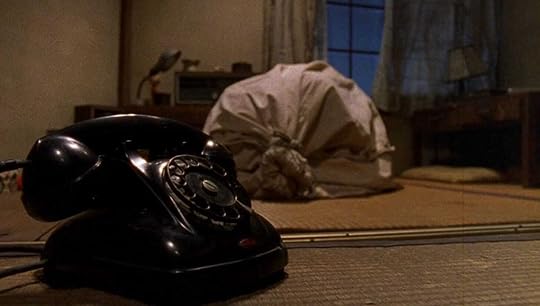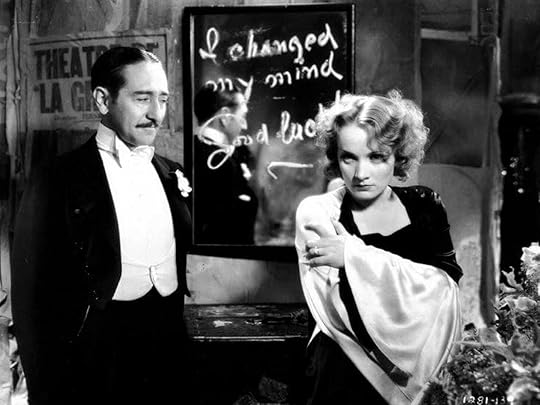Davey Davis's Blog, page 13
September 18, 2023
David Davis

Last year, shortly after publishing my second book, X, I was invited to speak on a panel about gender and literature. That sort of thing doesn’t happen to me very often, but as a trans artist writing about trans people, I was happy to be included, especially because the cis woman organizing the panel seemed to have a genuine interest in my book. It was clear from her thoughtful emails that she had read X as closely as anyone else I had spoken to about it, perhaps even more so.
And then there was the social significance. The panel was important, the cis woman told me, because it was going to be attended by so many cis people, who would arrive unfamiliar not just with my book but transsexuals as authors. This population desperately needed exposure to trans people, the way that children need exposure to wild animals at the zoo—for their enrichment, which, it was implied, would eventually trickle down to the rest of us.
You may be able to guess how it went. The day of the panel, the cis woman began by misgendering X’s protagonist, Lee. Not just once or twice, but repeatedly. When I overcame my embarrassment to correct her, her apology was more than deferential. She actually seemed shaken by her error (and in front of an audience, too!), but nevertheless, she persisted in her misgendering, though she didn’t appear to be choosing her words maliciously. In fact, it was as if she was physically incapable of doing otherwise. I considered cuntiness, but instead I was gracious, which I still regret, and finished the panel without further comment.
Afterward, when I emailed the cis woman to tell her I couldn’t in good conscience promote her panel on my social media, her written reply was as effusively penitent as her verbal one had been, although this time she wondered if perhaps Lee had different pronouns and I had just forgotten1?
The misgendering of an imaginary person that I made up for a story feels nothing like being called a tranny on the street or getting kicked out of the doctor’s office. This here was your garden variety micro-aggression, one from a lifetime of similar. You don’t have to be trans to find yourself someone’s empty vessel; of being not even an idea, but a void where an idea should be. Still, the whole thing bothered me, and if I think about it now, it still does. That cis woman had dehumanized Lee before she could encounter X as a whole—meaning I, as its author, had been disappeared before I could even be dismissed.
By the time I had begun writing my third novel, that panel had come to represent a nascent desire to make art about these experiences without having to metabolize them with my own body; this desire dovetailed with the ambient pressures of conducting myself as a TRANS writer of TRANS fiction—someone whose genre is necessarily informed by my genitalia, which I find to be so very unchic—in a political environment of genocidal transphobia. Why was it that I had to bear that burden alone?
Well, what if gave it to someone else? How would the normal version of me—a white genderqueer person—encounter the kind of entitlement, emptiness, and two-faced contempt that that cis woman has already probably forgiven herself for? What would it look like? What would it write like? How could I create a character to share this with me, and then take it for me? What would it be like to meet the world on its own terms: what is the, or at least a, trans experience without trans people? I realized that one way to replicate what the world presents to gender nonconforming people as our best case scenario for a trans public life—that is, a permanent, rigid, and violent sexualization, objectification, and infantilization—was to curse my protagonist, a straight-identifying white cis man, with an extreme and unrelenting beauty.
The first draft of Casanova 20: or, Hot World, my attempt at a trans book without trans people, is more or less finished2. Below, you’ll find a short, unedited, and paywalled selection, which I read last week at San Serriffe in Amsterdam with my lovely friend Huw Lemmey.
September 12, 2023
David Davis

For some likely algorithmic reason, the same week that Jade and I saw, enjoyed, and discussed Passages—the newly released sex drama starring the incandescent Franz Rogowski as a crop-topped chaos bottom compelled to emotional escalation—Twitter surfaced a clip of the legendary scene in Y tu mamá también (2001) when the frankly perfect Maribel Verdú teases teen puppies Diego Luna and Gael García Bernal around her body to the dovelike yodel of Marco Antonio Solís, his ballad of tragedy pulling the hair-trigger on the trio’s horniness—the perfect soundtrack for a drunken beach threesome doomed to nostalgia before it’s even come to pass.
Troubled MMF love triangles never go out of style, at least not for me. From the traditional to the transgressive1, this artifact of compulsory heteromonogamy seems almost perfectly designed to generate the urgency required to scale unmapped desire. Unlike the more stable couple form, whose secrets are more easily satisfied, the troubled MMF love triangle, wherein gendered punishment (emasculation for the male counterparts; neutering for the female) looms for all parties, has 50% more membership to feint, dissemble, prevaricate, and occlude. With power both obscured and decentralized, the trouble MMF love triangle is in a constant battle for balance—like a helicopter, it functions precisely because it must fight against upending itself.
Any of my subscribers located in Amsterdam? If so, join me and the brilliant Huw Lemmey for a reading at San Serriffe on Thursday, Sept. 14.
Find me on Twitter and Instagram. Get my second novel, X, right here.
Would that include Passages, with the established, rather than subtextual, queerness of its MM?
August 26, 2023
David Davis: Members Only

Will you wait for me here? he asked.
Yes, I said.
He laughed and said goodbye. The front door closed and clicked. For the next hour (though I didn’t know, at the moment, how long my friend would be gone), I tried not to move. If I did, I would be confronted with the limits of my ability, and if so confronted, I would struggle. I didn’t want to struggle, because it’s humiliating, and because I wanted to pretend that I was there of my own volition. Which, I reminded myself, I was.
August 22, 2023
David Davis

At Riis this weekend, I ran into an old friend, another writer.
Hello, how’ve you been, what are you up to these days? At our feet, a sea of gay people reclined on towels and blankets, their patchwork forded by leering gulls and nutcracker merchants. Speakers blasted house, latin trap, pop. A hundred yards off, an American flag decorated with headshots of the angelic Ice Spice rippled in the breeze. This summer’s beach reads—Big Swiss, Mrs. S—were out in force. Hello, I’m good, just finished the new book.
My friend had a friend, to whom I was introduced. I asked my friend’s friend if they were a writer, too. From the look on their face, I knew what their answer would be before they said a word.
I often ask people if they’re writers because the answer is often Yes. Actually, the answer is very rarely Yes, but it it’s nevertheless usually in the affirmative. When you ask someone Are you a writer?, and they don’t immediately reply No, you can rest assured that they desperately wish to say Yes, and perhaps may even eventually do so, but not without your help (and a lot of litigation, while they’re at it).
Well, the accused will begin, I mean, I have been working on something…
Or they’ll say: I know I can’t actually call myself a writer because…
Or: I had this [insert project], but there’s my job and laundry and everything. I don’t know how you find the time…
Long-winded and self-deprecating, their answers telegraph a heady blend of relief and anxiety. They’ve been caught red-handed at something (laziness? fakeness? delusions of grandeur?), but there’s defiance in this saga of inadequacy, too, as well as the blissful surrender of disclosure. This, I think, is what a priest must feel like when he’s listening in from behind his alveolate screen: sympathetic, but ruthless.
Only gradually have I realized that my favorite question—Are you a writer?—is a somewhat sadistic one. Curious about people but for the most part too nervous for most normal socializing, I’ve learned, in a sort of instinctual way, that putting someone on their guard is a great way to control the conversation. Any good interviewer knows that simply giving their subject enough rope is likely to be more successful than even the most incisive line of inquiry. Gently prompt someone to account for something they feel even a little conflicted about and nine times out of ten you can sit back, relax, and let their neuroses carry you away.
What does this sadistic tendency reveal about me and my sense of myself as a writer? Nothing flattering, I suppose, but then again, perhaps it starts to get at the problem at hand. I think that those who struggle so mightily with whether or not they’re a real writer are missing the point, a mistake they can only afford less as the advantages of being a writer continue to shrivel up and blow away. As the ability to exchange the labor of writing for money or career prospects, let alone something even flashier, continues to diminish, the question of why we write becomes even more pressing, at least for me.
If after the collapsing media industry, economy, and climate all that’s left for an artist is their own satisfaction, or the pursuit of it, then why not just call yourself a writer? What reason is there not to?
Find me on Twitter and Instagram. Get my second novel, X, right here.
August 11, 2023
David Davis

Early on in Alan Hollinghurst’s 1994 novel, The Folding Star, Englishman Edward Manners picks up Moroccan Cherif—“but born in Paris and uncircumcised,” Edward notes—and brings him back to the Flemish boardinghouse where he’s staying. Their first sexual encounter begins with some shyness. With Cherif seated on his lap, Edward is glad his lover can’t see him “gaping and heavy-hearted with praise” for the young man so newly cruised. But when Edward looks around Cherif’s shoulder, both men appear in the full-length mirror against the wall.
Our eyes met there, but [Cherif] was a little bothered by that intimacy. Then, as I was climbing to the end, he got right off me and stood on the floor. I scrambled up too, confused for a moment by my own reflection in the glass, as if without my specs the image needed to be blinked back into focus, or as if a sixth sense revealed a face within my face, ghostly features caught in the very silvering of the mirror. Cherif took a half-step forward, and fell against the glass with flattened palms. A sequence of sounds emerged from it, or from a distance beyond it; and then for a couple of seconds we saw ourselves dematerialise and a perspective open up within — a shuttered room with stacks of chairs, lit from the side by an opening and closing door. Cherif was sighing and laughing quietly, and sat down again on the bed while I pulled on my trousers, hopping and treading on the legs.
I’m taken with this scene, with the way Hollinghurst vacillates between sex and real life, discomfort and pleasure, the uncanny and the evident; between one man and another, strangers who call each other “friend.” Feeling both romanced and creeped out, I read this final graf several times over, certain I’d overlooked the turn of phrase or crucial conjunction that would unlock the specific sensation that Hollinghurst intended for me to experience. But no matter how many times I returned, that sensation evaded me. Why couldn’t I land it? What was I missing?
I’ve never liked mirror sex. Like Cherif, I’m put off by the looking glass’s capacity to double (quadruple?) intimacy. I don’t find my own face and body erotic, either, though I’m charmed by those who do. But willing as I am to indulge them, I see something sinister in this mirror sex business: it induces not just familiarity, but performativity, too, in the sense of reinscription, self-discipline, and doing as being. Now me, I get my rocks off different. To each their own, I suppose.
Unlike the ambiguous scene between Edward and Cherif, cinema’s mirror sex correlates so strongly with dirty, kinky, non-domicile fucking that this very short list of movies featuring it (taken from an informal Twitter poll I ran this morning) is uniformly horny and violent: Black Swan, American Psycho, Before the Devil Knows You’re Dead, Eyes Wide Shut, Tie Me Up! Tie Me Down!, Show Girls, Basic Instinct1. In this context, the mirror, particularly when located in an unusual place (anchored to the ceiling, amplifying a hotel or VIP room, walling a carnival funhouse), communicates cheapness, degradation, and transactionality. With its medieval trick of the light, it creates space surrounding and beyond the marriage bed, putting those inside at risk of contamination, infiltration, corruption. Even if you’re able to otherwise maintain the normalness of your sex in the presence of the mirror, its false multiplication perverts your pleasures. If there’s just two of you, you’ve created a group; if you’re alone, you become Narcissus.
It occurs to me that perhaps I’ve superimposed my distrust of mirror sex onto Hollinghurst’s novel, thwarting his intentions, if he had any when he wrote the above scene, with my own bias. Does this make me a bad reader? I don’t think so. But maybe it does suggest that I could stand to be a little more open-minded.
Find me on Twitter. Get my second novel, X, right here.
1Isn’t there one in In the Realm of the Senses? I can neither remember nor confirm.
August 7, 2023
David Davis 44, part 1

Jonathan Majors’s former coworkers and current attorney can agree on this much: Majors, whose rising star skyrocketed with his recent entrée into the MCU as Kang the Conqueror, is a Method actor. Or is he?
After Majors was arrested in March for allegedly assaulting his girlfriend, dozens of people from his personal and professional lives have come forward with claims about his past abusive behavior. While Majors denies all of them, his attorney, Dustin A. Pusch, does offer an explanation for the ones coming from his client’s former colleagues:
“The allegations that Mr. Majors got physical with or physically intimidated anyone on any movie set are downright false…Everyone who has worked with Mr. Majors knows that he employs an immersive Method acting style1, and while that can be misconstrued as rudeness at times, those who know Mr. Majors and work in the industry have attested to his dedication to his craft as well as his kindness.”
The logic of this defense is that the Method—a series of training techniques created at the beginning of the 20th century by Konstantin Stanislavski, and further developed for the American stage and cinema by Lee Strasberg, Stella Adler, and Sanford Meisner—stands in for Art with a capital A. Like its most famous practitioners, from James Dean to Marlon Brando, Majors should not only be accorded prestige, but lenience, because anything done in the Method’s name is understood to be necessary in the service of a sanctioned and profitable creativity. Pusch makes explicit the claim that Majors’s former coworkers can’t tell the difference between “rudeness” and unprofessionalism or even violence. While only implied, the clearest message to be taken from this line of defense is that Art takes precedence over people.
Now, we don’t need anything subtler than a meat cleaver to start deconstructing all of that, but what first jumped out at me was that the “immersive” preparatory technique invoked to excuse Majors’s on-set behavior is not actually Method acting. In fact, many of the actors working today who identify, or are identified, with the Method aren’t actually doing it.
Over the past century, as others have pointed out before me, the Method has come to be synonymous with actors taking extreme measures before filming and while on set, from losing or gaining a great deal of weight in a short period of time; to imitating a physical disability for so long they injure themselves; to loading a live round in the revolver used for a Russian roulette scene. The focus is on the lengths that the—usually white, usually male—actor will go to “become” the character, not on whether those lengths were successful in creating a beautiful, moving performance.

This isn’t to say that so-called immersive acting was foreign to Stanislavksi. In fact, it was one of the first ideas he hit upon as a young actor struggling to get into character as an elderly, miserly knight, way back in the late nineteenth century. At a loss, Stanislavski went to live in a castle, where all he gained was “a bad cold and despair.” “What might seem like a suspiciously perfect origin story for the immersive preparations now commonly associated with Method acting—an attempt ‘to live as his character lived’—in fact proved to be a false start,” writes Evan Kindley in last year’s review of Isaac Butler’s The Method: How the Twentieth Century Learned to Act.
For Stanislavski, immersion was the doorway to a much bigger idea. The trick to “living the part,” as he puts it in An Actor Prepares, which lays out his “System” by way of dozens of exercises and examples, is to make room for inspiration’s unanticipated and ungovernable arrival with somatic training. As the title indicates, the actor prepares to take advantage of inspiration by training those parts of themself that are under their control. “Our art teaches us first of all to create consciously and rightly,” says Tortsov, Stanislavski’s stand-in, “because that will best prepare the way for the blossoming of the subconscious, which is inspiration. The more you have of conscious creative moments in your role the more chance you will have a flow of inspiration.”

Last year, for a DAVID series about the commodification of kink, I wrote about Democratic donor and convicted murderer Ed Buck. Buck, a wealthy white man, paid Gemmel Moore, Timothy Dean, and Dane Brown, all poor black men, to come to his home and be “administered large doses of narcotics,” which resulted in the deaths of Moore and Dean (Brown survived, barely). Buck’s attorneys argued that the government’s “kink-shaming,” based on “prejudicial and irrelevant character evidence,” resulted in his convictions.
While there are many differences between the cases of Jonathan Majors and Ed Buck (including the fact that Majors has not yet had his day in court), I’m fascinated by the similarities in their defense strategies. Like Buck’s legal team, Majors’s seeks to excuse what ought to be unambiguous violence by conflating it with a nonviolent somatic practice2. In both of these high-profile legal cases, the defense teams are banking on mainstream definitions of violence and extremity—and what I believe is a widespread confusion regarding and hostility toward consent, desire, and pleasure—to disappear alleged harm.
Despite recent efforts to demystify the Method, including books like Butler’s, film programming, and documentaries, the public awareness of this approach remains confused enough to be exploited. While I’m no Method scholar, I am interested in what this means for Art with a capital A. Maybe you are, too.
Find me on Twitter. Get my second novel, X, right here.
1Bolding mine.
2Yes, I think the Method is grounded in non-violence. More on that later.
August 2, 2023
David Davis

In the summertime, I dream more and fuck less. The dreams are formulaic, even for dreams, while the sex, though less frequent, tends to be stranger and harder. And yet even the most obvious of these warm weather phantasms will somehow yield epiphanies, while what I believed to be random hookups or casual scenes are afterward exposed as the culmination of psychodramas enacted by some mysterious somatic energy of which I’m only vaguely aware. What is it about the season that makes contact with my unconscious so very on-the-nose? It’s almost irritating.
Even just writing the above graf has ferreted out another one of those epiphanies I mentioned: the dreams and the sex mirror each other! But of course they do. My dreams often involve me being forced or obligated to kill someone else1, usually someone vulnerable and helpless. Death features in my sex life, too, whether implicitly in the form of risk-taking, or explicitly as consensual violence. As a hypochondriac who wears sunblock every day, I’ve clearly figured out how to compartmentalize that which the dreams suggest (evoke? foretell? fetishize?).
What would happen if I were to compartmentalize a little less? But before I can work up the courage to find out, the summer is already drawing to a close. By the time September arrives, the dreams : sex ratio will be restored to a flirtier balance. Any scorekeeping my body will be doing will happen on a strict need-to-know basis. Bruises will yellow, nerve damage will rewire (hopefully), and the antibiotics? They’ll do what they do best. It’ll be as if nothing ever happened.
Thank you for your patience during my little summer vacation. I’ve been using this time to recover from writing my third novel, rest, read, and have fun. I’ve also been developing a new series about the Method, a pet interest of mine, and I’m excited to share the first installment with you soon. In the meantime, I hope you’re drinking enough water, eating enough food, and taking your deepest breath of the day first thing in the morning.
Find me on Twitter. Get my second novel, X, right here.
1From my journal: Dreamed about an old man who lived in my house and wouldn’t die. Laid him down when no one was home and held a pillow over his face. He struggled but I didn’t have to try too hard. Suddenly someone was coming home. I left the room, with the man still alive. He couldn’t speak, so he wouldn’t tell, but he wanted a hug from me.
July 27, 2023
David Davis

My first association with the before/after diptych is the TV infomercial: take this pill for hair growth, buy that workout equipment for weight loss, invest in this complicated food processor for a purée the likes of which you never thought possible. On the left, the grainy, poorly lit, unflattering before hovers like a Dickensian spirit; on the right, a sexy, glossy, hyper-saturated invocation of potential, the after, supplants its sinister sister.
These days, we have before/afters for trans people. They’re not new, of course—I suspect that not even Christine Jorgensen’s infamous 1952 cover story, “Ex-GI Becomes Blonde Beauty,” could be said to be the first to make the papers—but they’ve certainly become far more popular, particularly on social media. Many of us, maybe most of us, have created some variation on it, if only for ourselves in the private light of our photo app.
But popularity eats itself. Before/afters are highly clickable, especially for cis people. They’re titillated, appalled, and frightened by our transformation, which they scour for clues they can then use to transvestigate (transvestigation being another neo-genre of relationality and time-marking that eats itself). As a result, many of us trans people distrust the before/after, finding it to be problematic, cisnormative, and cringe. Everything has to be a freak show for cis people, doesn’t it? Binary-addicted, porn-brained, tin foil-hatted circle-jerkers turning a normal human experience into, at the very best, hollow, shallow, fallow aspirational content.
What I resent about the before/after, as a narrative, is that it’s not optional. Any two images of me must necessarily become a before/after, provided the latter was taken within the last five years or so. I understand why we get irritated when other trans people intentionally position themselves in this way, but the fact of the matter is that it’s unavoidable, and for this reason I can’t get all worked up about it. We’re all defined by this fetishization of change: first by the pursuit of it, and then by the process of it, and finally by the persisting notion that a sex change is somehow distinct from any other kind of aging, biologically speaking, anyway.
I thought about sharing my own before/after here in this post. I’m proud of how I’ve changed, and I suppose I could pretend to illustrate my point while actually capitalizing on the reality that images of myself make this newsletter pay out more. Not that there would be anything wrong with that. And maybe I’ll do it, sometime.
But what I like about my own before/after is how little I’ve changed, physically speaking. Most of it happened inside me, before the physical part even began, when I made the conscious decision to change. There’s no quantifying, not in pounds or hair follicles, the difference between my before and after. Like a religious relic, perhaps, the diptych tells you more with form than with content.
Find me on Twitter. Get my second novel, X, right here.
July 20, 2023
DAVID: Members only (unlocked)

I’m taking the month off from thinking, so this essay—written but never published for the dear, departed Astra —is now unlocked. Don’t worry, paid subscribers! I’ll be making it up to you, likely with blood. Stay cool out there.
Though it offers a steam room, a sauna, and bodywork services, Oakland’s Piedmont Springs is best known (among my old milieu of Millennial punks and queers, anyway) for its private outdoor hot tubs.
Wedged between a garden store and a bookshop, the spa’s shabby foyer leads to a wood-paneled corridor, beyond which are the patios that are so popular you should aim to book a week in advance. Hang your bag on one of the wall hooks and, once your escort closes the door behind you, strip down and surrender yourself to the caldera. If clouds bruise the square of sky above, it’s easy to imagine that you’re cloistered in the core of a Pescadero yurt, the air piquant with sequoias and sea salt.
From Berkeley’s women-only backyard nude tub with the hottest temps I’ve ever braved; to gay bathhouses like Steamworks and Eros; to the geothermal pools scattered throughout the Bay Area, there are plenty of local institutions distinguished by their potential for sweat and anonymity, but Piedmont Springs is probably my favorite. You can go with your friends to shvitz. You can go with your dates to fuck. You can go with your regular because, for the price of $27 per person per hour (though I think it was cheaper, back in my day), it’s one of the most convenient places for professional piss play outside of a private residence.
Discreet, relatively inexpensive, and requiring minimal cleanup—there’s a shower in the corner and drains in the concrete floor—at Piedmont Springs, you can work with the sun on your shoulders and a jet massage as consolation prize if your client no-shows. Not that G ever did.
I first started seeing G at my old dungeon, and when I went independent, he came with me. When we met, he described himself as a normal guy into vanilla sex, with one interest niche enough that he was obliged to outsource its fulfillment: the desire to slide under a pretty girl and drown, for a few precious moments, in her sharp and silky warmth. G was covered in traditional tattoos and restored muscle cars for fun, but he went schoolboy when he talked about what he wanted from me.
It’s so sexy, he said. G loved sexy things. And it tastes amazing.
He struggled to convey what it was about golden showers that he liked so much, and why they brought him to what was essentially a brothel, rather than to the feet of an open-minded girlfriend. This mystifying urge left him both verbose and inarticulate, as our deepest erotic desires do for most of us; though he was no poet, G’s passion, which he was happy to leave more or less unexamined, felt poetic to me.
A couple times a month, G drove down from Sacramento to meet me at Piedmont Springs, which both of us preferred to the dungeon bathroom where we first spent time together. Granted an additional layer of privacy by the roar of the jets, it was easy to relax in our moisture-slick cubicle, where the air is keen with chlorine yet soft with mildew. In the daylight, our sessions felt casual, even like happenstance—preferable for G, who tended to date the girls he hired, grimly trusting that the strippers and pro-dommes that were twenty-five years his junior shared his belief in a connection that was more than transactional. And maybe it was for some of them. G was a nice enough guy with a good job, and not at all bad-looking, though admittedly I can’t remember a single thing about his dick.
Timing is essential with piss guys, which meant that, nice though G was, our dates were unpleasant for me. He usually booked for an hour, which meant I had to hold it for 60 minutes at minimum, not including however long it took to work up a reserve before the session began (and god forbid he ask to extend!). To give a professional golden shower, you must be well-hydrated overall, not just for the sake of volume—like a dog on a walk, quantity matters—but because most people of G’s sort have strong opinions about their ambrosia’s flavor, smell, even texture (in a transactional situation, these opinions can veer into micromanagement, but that’s fetishists for you).
What’s more, I couldn’t relieve myself until G was ready to cum, which only happened when he’d had his hour’s worth of fooling around and talking about himself. It’s one thing to sit on a full bladder while hunting for a place to pull over. It’s another to do it while flirting or even fucking, usually in heels and uncomfortable lingerie, all while trying to maintain the illusion of a sudden, surprising need to let loose a gallon of crystal-clear nectar all over the nearest man’s unwitting pate. Whereas gay men seem to prefer to use “watersports” for their piss play, a term communicating a jocular, messy, and even egalitarian exchange of fluids, the more straight-inflected “golden shower” suggests a top-down phenomenon not found in nature unless by way of divine circumstance, like Zeus’ nocturnal visit to Danaë’s bronze prison.
Was it the sense of being anointed that got G’s dick hard? Maybe I’m overthinking it. It’s easy enough to compare the golden shower to orgasm—or, these days, to the internet porn-popularized phenomenon of female ejaculation. As with orgasm, a golden shower begins with pressure, building as you approach an intuited but unknown limit, tantalized by a pleasure that promises its own annihilation. The animating liquids in your body boil, preparing to burst from one of your rare natural apertures. Sensation races through your nerves, nearing an obscure destination, an irresistible nexus that hits like a flipped switch, like jets screaming awake in quiet water. Boom. Nut. The little death, all over someone else’s face.
Inevitable though it may feel, this release can’t always be taken for granted. It didn’t take long for me to develop a comfort with golden showers, but that didn’t mean they came easily every time, even with G, one of my best clients. There were days that I realized, with his eyes locked on my cunt and his muscles tensed, that I was unable to perform—but the show must go on. While I waited out the freeze, I pretended it was all a part of our naughty little game, a withholding rather than a malfunctioning. This was the part of the job where personality was clutch, and where an injection of dominance came in handy, even for someone as vanilla as G professed to be.
It’s going to feel so good, baby, I would say. It’s coming all over your face. Is that what you want? Shit like that.
The trick was to build tension, playing on his anticipation, hypnotizing him with the threat of attaining his fantasy. And what was that, exactly? To break the rules? To feel special? To go under for good?

Before I started working at that dungeon, I never would have thought that I’d come to enjoy pissing on anyone. At best, I figured while waiting in the hallway for my first-ever $30 walk-on, it would be another thing to grudgingly do for money, like mop floors or organize spreadsheets. I think I can be forgiven for once believing this kind of scene was always straightforward, all about the piss. But then sometimes, while perched above G’s handsome nose, the need for relief so strong I wasn’t sure I could have made it to the toilet three feet away, I watched him watching me—desperate yet focused, nowhere else but here, and yet totally gone—and realized I could feel it, too.
Earlier this year, when I watched Ken Russell’s campy horror comedy, The Lair of The White Worm, I was reminded of G, by now almost a decade in my past. Amanda Donohue stars as the film’s villain, the sylphy Lady Sylvia, an immortal priestess posing as an aristocratic nympho who kidnaps people to feed the medieval monster roaming the caves under her estate. Stumbling across a custardy young man hitching for a ride in a rainstorm, she lures him back to her manor, where she convinces him to take a hot bath in a tub even bigger than the ones you’ll find at Piedmont Springs. Lulled by Lady Sylvia to horny compliance, the young man dutifully stands to be soaped down, only to watch her sink her fangs into his cock. Paralyzed by her poison, he can’t resist as she pushes him under with her latex boot, his dying breath joining the bubbles like so much foam on the sea.
Though the young man is drowned, he does not meet his doom in Lady Sylvia’s cauldron. He was lost the moment he came across her ominous little sportster, her garter belt flashing from the British side of the car. Though he has his reservations—her absurd negligee, her brioche-thick double entendre, her canines winsome against her lipstick—he doesn’t feel unsafe until it’s too late. He knows he is being naughty, staying out longer than he’d intended when he left the hostel this morning.
“To die so that the god may live is a privilege,” Lady Sylvia reassures him, moments before he goes under for good.
Find me on Twitter. Get my second novel, X, right here.
July 11, 2023
DAVID: Members Only
 Top concealed for privacy :)
Top concealed for privacy :) Bunnies drip from the ceiling and collapse into nubile pretzels. Their backs arch and their hips thrust. Whether they smile and laugh, or tighten their lips in meditation, or merely suffer, they all share the anaerobic daze of a scruffed mammal. When I see their twisted bodies, I think, horribly, Yummy.
Am I going to have to learn how to do a chest tie so you can relax? Jade says.
Davey Davis's Blog
- Davey Davis's profile
- 55 followers



